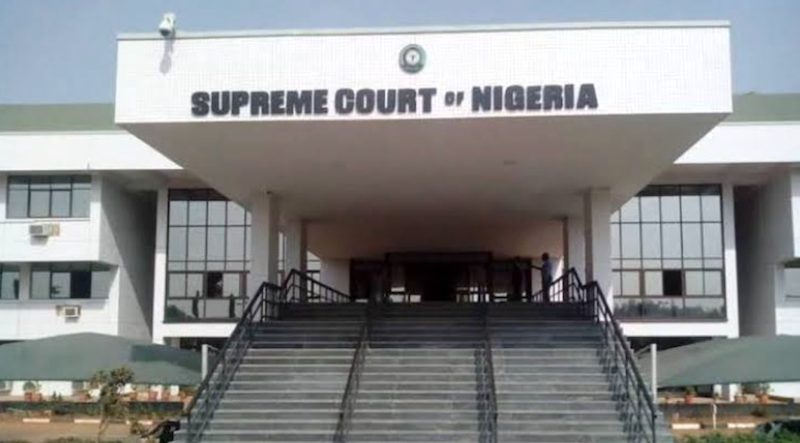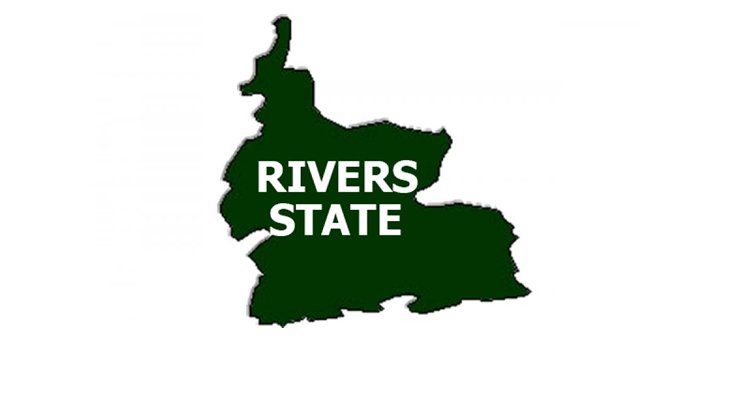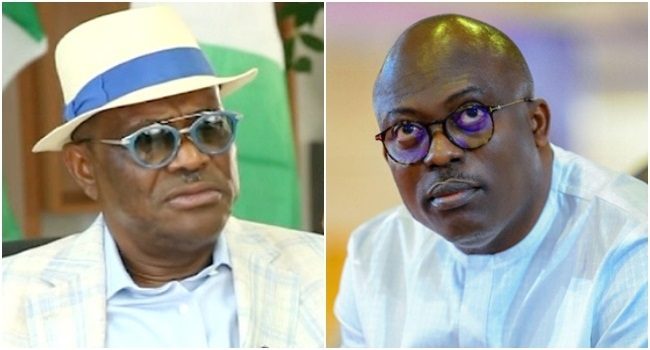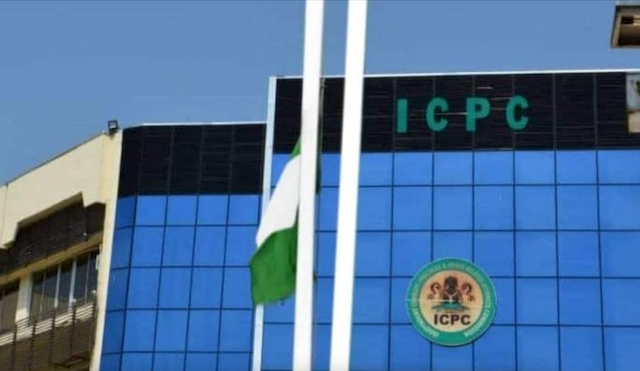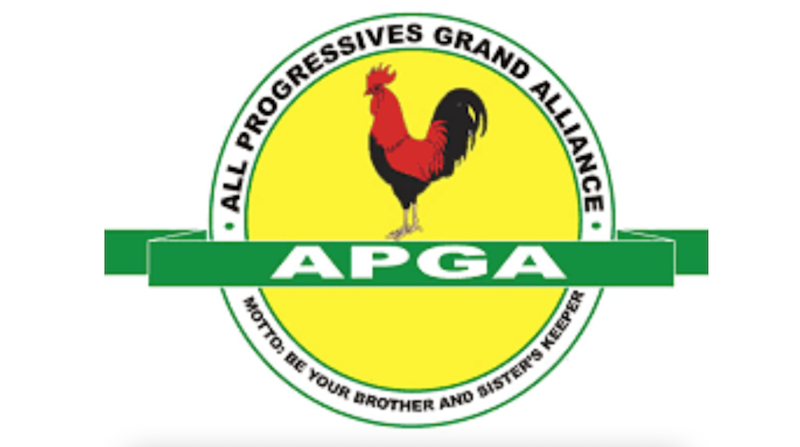The Supreme Court on Friday affirmed the Rivers House of Assembly led by Martin Amaewhule as the authentic and legally constituted lawmaking body in the state.A five-member panel of justices led by Uwani Abba-Aji gave the order in the unanimous judgment read by Justice Emmanuel Agim.
The Alex court also restrained the Central Bank of Nigeria (CBN) and the Accountant-General of the Federation (AGF) from further releasing budgetary allocations to the Rivers Government until a valid Appropriation Act is passed by a lawfully constituted house of assembly led by Martins Amaewhule.
The embattled assembly Speaker, Amaewhule, and 26 others were alleged to have dumped the Peoples Democratic Party (PDP) for the All Progressives Congress (APC) and their seats declared vacant by Okey Jumbo-led house of assembly.
But in its decision, the Supreme Court ordered that all members of the Rivers House of Assembly are to resume normal legislative businesses without any hindrance to any members.
Justice Emmanuel Agim, in the lead judgment, agreed with the arguments made by lawyer to the Amaewhule-led members of the assembly, Mr Ogwu Onoja, SAN.
Justice Agim condemned the conduct of Gov. Siminalayi Fubara, who he said, chose to destroy the government of the state and resort to acting unlawfully by pulling down the house of assembly due to his fear that there were moves to impeach him.
“It must be stated loud and clear that the crisis in Rivers State is as a result of non-adherence to the rule of law as well as the fragrant disregard of court orders,” he said.
The judge faulted the Court of Appeal for holding that the Federal High Court lacked the jurisdiction to hear the suit, marked: FHC/ABJ/CS/984/2024.
The suit sought to restrain the CBN and AGF from releasing funds to Rivers owing to its failure to obtain a valid Appropriation Act in compliance with the Jan. 22, 2024 judgment by Justice James Omotosho in suit number: FHC/ABJ/CS/1613/2023.
He also faulted the consequential order made by the Appeal Court in the Dec. 13, 2024 judgment, voiding the Oct. 30, 2024 judgment by Justice Joyce Abdulmalik in suit number FHC/ABJ/CS/984/2024.
“The view of the Court of Appeal that suit number: FHC/ABJ/CS/984/2024 is over the consolidated revenue fund of River State is wrong as it is not supported by the reliefs claimed for in the originating summons.
“This wrong view influenced it to hold that the subject matter of this suit is not within the scope of the jurisdiction of the Federal High Court.
“It is glaring that the objective of suit number: FHC/ABJ/CS/984/2024 is to stop the release of funds to the 1st and 2nd respondents herein – the Government of Rivers and Simi Fubara – so as to compel them to comply with the judgment in suit number: FHC/ABJ/CS/1613/2023 by causing the passage of the appropriation law by the Rivers State House of Assembly properly constituted as prescribed by the Constitution.
“Suit number: FHC/ABJ/CS/984/2024 is not a fresh action with the subject matter independent of the subject matter of suit number: FHC/ABJ/CS/1613/2023. It is sequel to the judgment in suit number FHC/ABJ/CS/1613/2023,” the judge said.
Justice Agim proceeded to set aside the Dec. 13, 2024 judgment of the Court of Appeal, in which the appellate court held that the Federal High Court lacked jurisdiction to hear and determine on cases relating to funds belonging to Rivers State.
He restored the Oct. 30, 2024 judgment by Justice Abdulmalik and all the consequential orders made thereto.
The judge said: “In the light of the foregoing, I hold that the decision of the Court of Appeal that the Federal High Court lacked the jurisdiction to entertain and determine suit number FHC/ABJ/CS/984/2024i s wrong.
“The trial court validly exercised it’s jurisdiction to hear and determine suit number: FHC/ABJ/CS/984/2024.
“So appeal number: SC/CV/1174/2024 is resolved in favour of the appellants. On the whole, this appeal succeeds as it has merit. It is accordingly allowed.
“The order the Court of Appeal made on the 13th of December 2024 in appeal number: CA/ABJ/CV/1287/2024, striking out suit number: FHC/ABJ/CS/984/2024 for lack of jurisdiction is hereby set aside,” he said.
Justice Agim faulted the decision of the Rivers governor purporting to deploy the doctrine of necessity and the provisions of Sections 102 and 109 of the Constitution to justify his decision to relate with only four members of a 32-member Rivers House of Assembly.
He held that, having created an environment that made it impossible for the state assembly to lawfully function, Fubara could not rely on Sections 102 and 109.
The court held that the doctrine of necessity to give validity to the proceedings of the house of assembly constituted by less than 1/3 of the members and the action of his actions, which included presenting the state’s appropriate bill before a four-member assembly.
Justice Agim said that Fubara had started preventing the house from conducting its businesses before the issue of defection occurred.
He held that having prevented the 27 members from conducting their legislative businesses by pulling down the assembly complex, Fubara’s claimed that the 27 members were no longer members of the state assembly, on grounds that they had defected, was incorrect.
“The claim that the 27 members are no longer members is a perpetuation of his attempt to prevent them from participating in the House business. The 27 members are still valid members of the House of Assembly,” justice Agim said.
He added that Fubara’s fear of impeachment was not a justification for his attack on the house of assembly.
“What he has done is to destroy the government because of his fear that he wants to be impeached,” he said, while expressing concern that this practice was becoming a culture among politicians.
Justice Agim, therefore, awarded a cost of N5 million against Fubara and the government of Rivers, to be paid to the Rivers House of Assembly and Amaewhule.
Other members of the panel; Justices Uwani Abba-Aji (who presided), Ibrahim Saulawa, Chioma Nwosu-Iheme and Jamilu Tukur agreed with the lead judgment.
Also in another judgement delivered on Friday by the same panel, the Supreme Court voided the last local government election conducted in Rivers on Oct. 5, 2024.
All members of the panel unanimously held that the election was conducted in violation of Section 150 of the Electoral Act 2024.
Justice Jamilu Tukur, in the lead judgment, agreed with the appellant, the APC that conditions precedent were not complied with before the Rivers State Independent Electoral Commission (RSIEC) held the election.
Justice Tukur held that there was no evidence the voters’ registration continued until 90 days before the election and that the requisite notices were issued as required by law.
